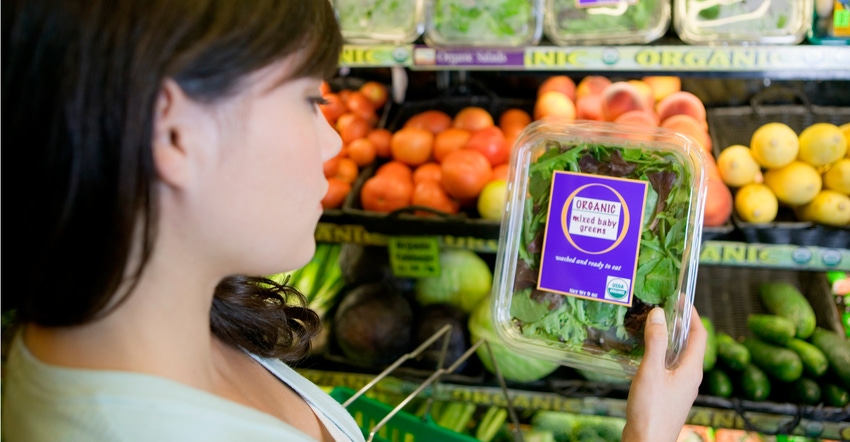
Grocery wholesalers and retailers, even some fast-food marketers, are pushing organic products and ingredients. That’s why the organic sector is growing at a double-digit pace.
But stop the bandwagon! Not all of those products meet USDA organic standards. Roughly 40% of all organic food sold in America tests positive for prohibited pesticides, according to two USDA studies.
And, as previously reported, Mischa Popoff, a former USDA organic inspector, has long railed that certified U.S. organic marketers are too often “given a pass” on meeting strict organic standards. He also contends that much of that 40% could be coming from overseas.
Roughly 80% of all organic food sold in America is now imported from countries like China, Turkey, Mexico and Brazil. He submits there may be a causal relationship — bribery and fraudulent claims — extending far beyond organic foods.
A recent Brazilian incident reported by Food & Water Watch lends credence to that claim. F&WW called on USDA to revoke the equivalency food safety determination for Brazilian meat exports to the U.S.
“This latest revelation of corruption — bribery, using chemicals to cover up rotten meat, sending salmonella-contaminated meat to Europe and falsifying health certificates — comes after past problems with the country’s equivalent inspections system,” noted Wenonah Hauter, F&WW executive director. She, too, contends that falsified documents and inspection bribery are rampant.
Fraudulent organic certification is nothing new, but is on the rise. A recent online report by USDA’s National Organic Program offered a long list of fraudulent organic certificates. Imports on that list come from all over the world. Brazil, China, India, Malaysia and South Africa are some of the most common countries of origin.
The United States has its own share of import businesses on that list with addresses, for example, in New York, Maryland and North Carolina. Even U.S.-based certifiers commonly claim on that fraudulent organic certificate list that “We’re not responsible for production.”
Organic is big and booming
The organic industry — farm operations and/or businesses — is growing at a 13% annual rate, according to USDA data. At latest count, there were 24,650 certified U.S. organic operations and 37,032 around the world.
Organic certification is an “opt-in” voluntary standard managed through a public-private partnership. USDA accredits and oversees approximately 80 businesses and state agencies that directly certify organic farms and businesses.
The complete list of certified organic farms and business is available through the Organic Integrity Database of certified operations maintained by USDA-accredited certifying agents. Launched in 2015, the database discourages fraud by providing more accurate and timely information about operations certified to use the USDA organic seal. That database also supports supply chain connections between buyers and sellers of organic goods. Anyone suspecting a violation of the regulations can report a complaint to the NOP Compliance and Enforcement Division.
If there’s a bottom line here, it’s this: Consumers, purchase organic products from farmers and local businesses you trust.
About the Author(s)
You May Also Like




